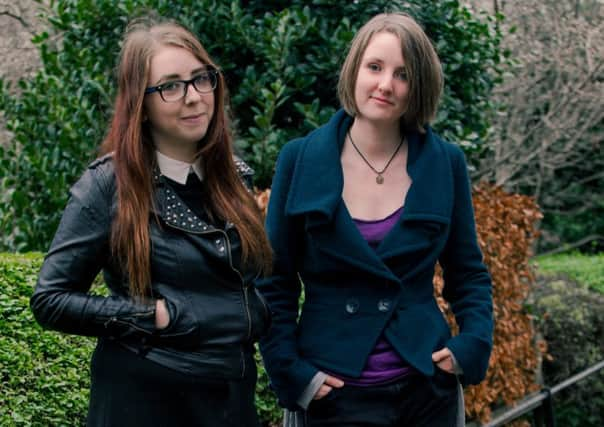404 Ink prove print publishers need not fear the internet


Crowdfunding platforms such as Kickstarter, and online subscription services such as Patreon, are being increasingly used to fund the production of journals and books that would otherwise struggle under the traditional publishing business model.
Heather McDaid and Laura Jones, the Edinburgh-based founders of the small 404 Ink publishing house, decided to launch a crowdfunder last month to pay for their first book - a collection of non-fiction essays titled Nasty Women - having successfully produced a literary magazine.
Advertisement
Hide AdAdvertisement
Hide AdHoping to raise £6,000 to pay contributors and cover production costs, they smashed their target in just three days. The total raised now stands at over £22,000 - and the book will be out on International Women’s Day.
“We wanted to run a subscription service for our own literary magazine - but wanted to do so slightly differently from the usual ‘send a cheque to this address’ technique that we’d seen time and time again,” Jones told The Scotsman.
“Patreon appeared to be the perfect site from which to run our subscriptions and we fancied a challenge. It allows creators to publish directly to fans who pledge an amount of money either per month or per item - we opt for per magazine - and creates a two-way street of communication which is typically absent from subscription models.
“Because the amount pledged to creators is public for everyone to see, it creates transparency and accountability that we think publishing needs more of.”
Publishers of all sizes have realised there is no quick fix to deal with changing consumer habits brought about by Kindles and other tablet devices.
While a 2015 study found print sales of adult fiction have declined by over £150m in six years, the ebook market - previously hailed as an industry saviour - has proved to be less than resilient, with sales reportedly down in 2016.
Jones admits the books industry has not been the quickest to embrace the internet era.
“Digital fears come naturally to a paper-driven business but publishing is notoriously slow to adapt to keep up with digital competition - and the demands of consumers who want more and more products available on digital platforms for less and less cost,” she said.
Advertisement
Hide AdAdvertisement
Hide Ad404 Ink believes there is still a market for quality print products - with digital tools playing a vital role in their promotion, funding and distribution.
“We love the physical product and we put a lot of work and money into making sure our magazine in particular is an object people immediately see and feel the value in,” Jones added.
“We also have the ebook versions available and buying it from our website will see you able to download a zip file of three versions to cover all bases.
“We’re particularly keen on the bundling model, where if you buy a print copy to get a free, or at least massively discounted e-book copy with it.
“This seems like a no brainer in the future of the digital book but there is yet to be a platform that successfully executes this.
“Shelfie, which is now defunct, had a very good stab at it but couldn’t make it work in the long term, which really is a shame.
“It’s a long-term goal of 404 Ink to make print book and e-book bundling work but it’s something that needs time to consider.”